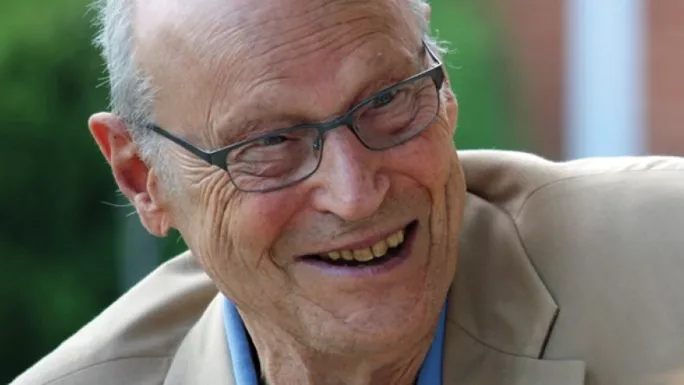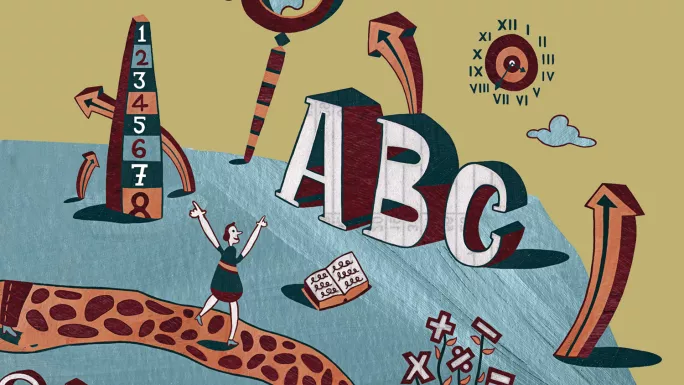
‘Age-appropriate teaching has no scientific basis’

I was writing my new book, Why Knowledge Matters, when a controversy erupted over an early reading programme that I helped to develop called Core Knowledge Language Arts. It had been selected as the official early childhood reading programme of New York State; it was made available for free to New York schools and anybody else who wanted to use it. Such initiatives normally cost schools thousands of dollars. It also came with strong research backing its implementation - it had been shown to be outstandingly effective in a 20-school, three-year trial in New York City.
Despite the evidence of its success and huge cost savings to schools, many teachers nevertheless resisted using the programme. The reason? They believed that it was “developmentally inappropriate”.
This is a term used freely by early childhood teachers. They have been taught to believe that education should follow a natural path of growth, so that exposing a young child to adult material prematurely is fruitless, harmful and boring.
That sentiment had already caught on by 1929 when Antonio Gramsci, the brilliant socialist thinker imprisoned by Mussolini, wrote the following in one of his Prison Notebooks: “The new education has become a kind of church that has paralysed educational thought, and has given rise to some curious inversions. It is almost imagined that the brain of the child is like a ball of yarn that the teacher should help to unwind.”

This naturalistic “new education” has held on for more than a century. It is still received doctrine that an untimely imposition of “rote-learned” facts on children before they are “developmentally ready” will harm their development and kill their joy in learning.
Mainstream science needs to be our guide, not confident slogans
In my New York controversy, the most celebrated instance of such untimeliness was a first-grade unit on Mesopotamia. Here’s a typical teacher’s internet comment on the unit: “It’s NOT age appropriate. Six-year-olds should be learning about their own communities and surroundings.”
That view isn’t based on accurate child psychology and it is socially regressive. The famous psychologist Jerome Bruner stated years ago that any topic, properly presented, could be taught at any school age. Moreover, from the standpoint of social justice, withholding knowledge from poor children that rich children routinely gain is socially regressive. Middle-class parents in the United States have been harmlessly teaching their first-graders about Mesopotamia for the last 25 years, from my book What Your First Grader Needs to Know (1991). Bored by the nullity of “our house” and “our community”, 1st graders and their parents have been charmed by learning tongue twisters like the Code of Hammurabi, and the chance connection between Mesopotamia and a hippopotamus. By sticking to “our community”, the teachers of less-advantaged students whose parents lack the means, education, or leisure to read such things to their children, are further holding back those who have already been held back.
Mesopotamia is a trivial example, of course - it happened to be the lightning rod for New York State - yet the issues raised by the incident are anything but trivial.
Finding the consensus
My new book shows that, in the US, the idea of natural development - the concept of tailoring the content of education to the development of the individual child - has, along with related misconceptions, resulted in the following misfortunes: the narrowing of the early curriculum, the overtesting of students for non-existent general skills, and the widening of the achievement gap between rich and poor students, as they progress through the grades.
The book’s critiques are consistent with consensus science in psycholinguistics, cognitive science and developmental psychology. I argue that the scientific consensus in these fields is the nearest we come to the reality principle in education. That’s why I invited well-known researchers Steven Pinker, Susan Neuman and Daniel Willingham to blurb my book, rather than asking public figures or the representatives of any particular educational policy. I’m gratified that these scientists have endorsed the arguments therein.
My claim of scientific accuracy is strategic for the book’s ideas, because they are heterodox ideas in US education at the moment. The book argues that our guiding theories and policies in schools do not comport with current scientific consensus and that this explains our frustrations. We have become disappointed in policies and programmes that seemed experimentally promising, such as smaller class sizes, direct instruction and Success for All. They were all supported by carefully conducted experiments, but in the long run they have disappointed. We have been likewise disappointed by the charter-school movement.
These disappointments suggest that mainstream science needs to be our guide, not confident slogans nor educational experiments. The uncontrolled variables in short-term educational research fly in every direction. Education is a long-range process.
I therefore argue that it’s time to look at policies that flow from relevant scientific principles that are strongly supported by large-scale international school data.
The consensus in basic science represents the reality principle in education
The consensus in basic science represents the reality principle in education. Any educational proposal or policy that runs counter to that consensus is likely to disappoint. This intellectual corrective is especially important when it comes to two ideas in particular: the importance of developmentally appropriate practice and the existence of general, all-purpose skills, like finding the main idea, problem solving and critical thinking.
In terms of the latter, in current scientific literature, skilled performance is rarely called a general “skill”. The term of choice is “expertise”. The verbal contrast between skill and expertise is important because the term “skill” has allowed educators to adopt the convenient but incorrect principle that the specific content of education is less critical than the development of general skills like problem-solving, and critical thinking and finding the main idea. It turns out that these supposedly general competences simply do not exist as all-purpose skills independent of specific knowledge domains. There are very few all-purpose, free-floating skills. Skills are dependent on specific knowledge. A key term in recent scientific literature is “domain-specific”. Most of the competences that children need to learn in school are domain-specific competences.
This finding has exceptionally strong implications for schooling. If skills matter, as everyone concedes, then domain-specific knowledge must matter a great deal. The specific contents of a school curriculum matter crucially. The claim that “you can always look it up” is an outmoded slogan. You can look things up effectively only if you are already in possession of preparatory, domain-relevant knowledge. Our slogans about general skills and our brave new world of instant internet information all need to be re-examined. Psychologically, they are not reality based.

The corrective to the second idea is even more important: we need to reconceive our faith in individual natural development. In developmental psychology, emphasis is gradually shifting from the word “development” towards the word “culture”. The differentness of a child’s development within different languages and cultures has become a major theme in the developmental field. To his great credit, psychologist Jean Piaget heralded that change in a speech of 1964 when he conceded that “maturation is not everything”.
This points up a paradox concerning natural development. It’s now generally understood that letting a child unfold naturally according to their own time clock, like a ball of yarn, is quite an unnatural proceeding for a human being.
What is natural for a child is to be inducted into the particular language and value orientations of a particular culture. These cultures are quite varied, too. The word “culture” is now understood to be a co-determinant of “development”. This leads to the paradox that so-called “unnatural” education is inherently natural, whereas naturalistic education is inherently unnatural.
This shift in scientific understanding has implications for educational policy and practice: truly natural development for human beings includes acculturation.
Adults should decide
In our post-agrarian era, with the rise of cities and nations, when parents have partially relinquished education to schools, a chief responsibility of schools is acculturation. The abstract, naturalistic approach does not work.
The story that I tell in my book has two subplots: the story of policies that do not work and the story of the underlying ideas that have caused us to persist in those policies regardless. It’s possible that the intellectual-history subplot could be the main contribution of the book. Without changes in our underlying convictions about individualism and natural development, we are unlikely to make fundamental changes in our practice.
After many years of educational discussion, I think I can now identify the chief underlying idea that needs changing. I call it providential individualism - the focus on the unique individual rather than on acculturation, combined with the belief that some supervening providence, like nature or the free market, can guide our educational policies. On the contrary, it’s neither providence nor nature, but we adults who need to decide quite specifically what our children should know and be able to do.
The book accuses both the naturalistic left and the market-oriented right of misplaced providentialism. The critique therefore includes most of my colleagues in the school world. My main aim has been clarity.
To offend everybody is one of the few prerogatives left to old age.
ED Hirsch Jr is professor emeritus of education and humanities at the University of Virginia
You need a Tes subscription to read this article
Subscribe now to read this article and get other subscriber-only content:
- Unlimited access to all Tes magazine content
- Exclusive subscriber-only stories
- Award-winning email newsletters
- Unlimited access to all Tes magazine content
- Exclusive subscriber-only stories
- Award-winning email newsletters
You need a subscription to read this article
Subscribe now to read this article and get other subscriber-only content, including:
- Unlimited access to all Tes magazine content
- Exclusive subscriber-only stories
- Award-winning email newsletters
- Unlimited access to all Tes magazine content
- Exclusive subscriber-only stories
- Award-winning email newsletters